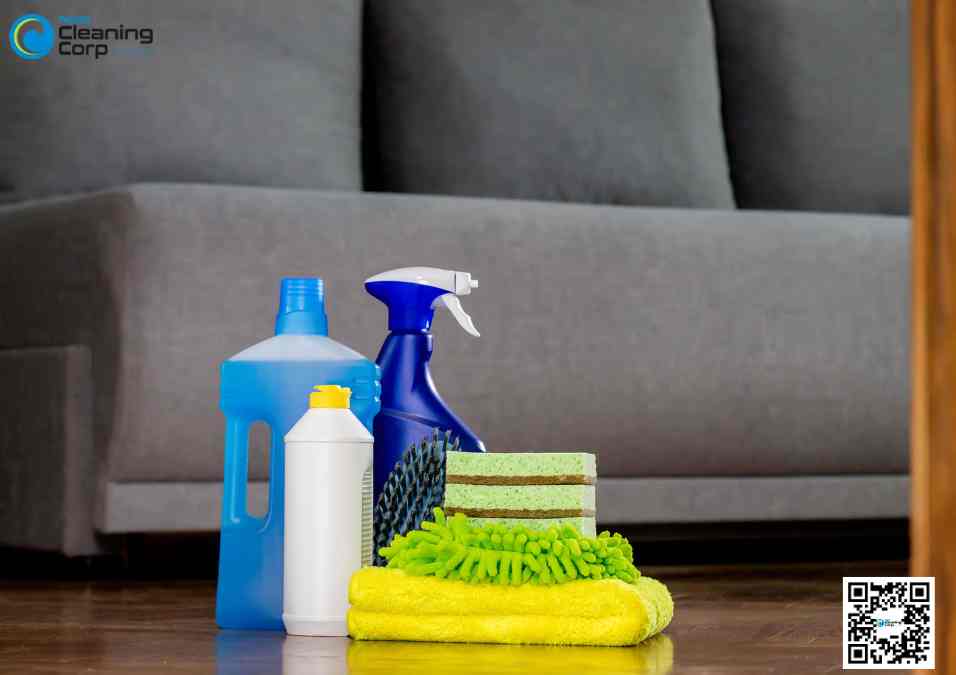Does the NDIS Fund Cleaning Services?
Yes. The NDIS does fund cleaning services — but it...
NDIS cleaning services are specialized support services designed to assist individuals with disabilities in maintaining a clean and safe living environment.
These services encompass a variety of tasks aimed at ensuring homes are hygienic and conducive to health and well-being. Common tasks within NDIS cleaning services include vacuuming, dusting, laundry, bathroom cleaning, and kitchen sanitation.
Eligibility for NDIS cleaning services is determined by the National Disability Insurance Scheme (NDIS). Individuals eligible for these services must meet specific criteria outlined in their NDIS plan. For example, individuals with physical impairments or those who require assistance due to cognitive or sensory disabilities can access cleaning support as part of their funded services. According to the NDIS Annual Report 2022, over 500,000 participants are currently receiving support, demonstrating a significant need for cleaning and domestic assistance among people with disabilities.
Furthermore, participants must have a clearly defined support goal in their plan, which may include maintaining a clean home environment. The cleaning services agreement details the specific tasks to be performed and the frequency of those tasks, tailored to meet each participant’s unique needs.

Why do personal preferences matter in NDIS cleaning services? Personal preferences play a crucial role in ensuring that cleaning services align with the individual’s lifestyle, health needs, and personal comfort.
When cleaning services reflect the preferences of NDIS participants, they not only uphold cleanliness standards but also promote independence and self-determination. For instance, participants may have specific preferences for cleaning products due to allergies or sensitivities. According to a study conducted by the University of Melbourne, participants who customized their cleaning services reported a 30% improvement in satisfaction levels, highlighting the positive impact of aligning services with personal preferences.
Consider the story of Jane, a 34-year-old NDIS participant with asthma. Jane struggled with maintaining her home due to her respiratory condition, which made her sensitive to strong cleaning chemicals. After customizing her cleaning schedule, she chose hypoallergenic cleaning products and set specific tasks for her cleaner, focusing on high-traffic areas that needed more frequent attention. As a result, Jane not only achieved a cleaner home but also experienced fewer asthma flareups, leading to improved health and well-being. This real-life example illustrates the profound effect that tailored cleaning services can have on an individual’s quality of life.
The ability to customize cleaning services empowers individuals to take control of their environment, enhancing their overall satisfaction and promoting a sense of ownership in their living space. As highlighted by the NDIS Quality and Safeguards Commission, maintaining personal preferences is integral to delivering effective support services to individuals with disabilities.
Evaluating your home’s size, layout, and specific challenges is essential for determining effective cleaning needs.
The first step involves measuring the square footage of your home. A larger home often requires more cleaning time and resources compared to a smaller one. According to a survey conducted by the Cleaning Institute, homes over 2,500 square feet typically necessitate an additional 20% of cleaning time compared to homes around 1,500 square feet.
Next, consider the layout of your living space. Open-concept designs may simplify some cleaning tasks, while homes with many rooms may complicate others due to corner cleaning and managing clutter in multiple areas.
Specific challenges such as stairs, high ceilings, or accessibility issues should be accounted for. For instance, a two-story home might require additional attention to dust accumulation on stair railings, which can be overlooked in a single-story layout.
This checklist can serve as a vital tool for both you and your NDIS cleaning provider to ensure all necessary tasks are clearly identified and addressed in your cleaning services agreement.
Understanding the frequency with which different areas of a home require cleaning is key to maintaining a healthy living environment.
Insights on cleaning frequency:
Checklist example for customizable cleaning frequency:
Providing a downloadable cleaning schedule can greatly assist NDIS participants in customizing their plan according to personal needs. This schedule can act as a dynamic tool to adjust based on changing circumstances, ensuring that cleaning tasks evolve with individual requirements.
Regular feedback is vital in ensuring that cleaning services meet the specific needs of NDIS participants. An ongoing dialogue between clients and service providers fosters a collaborative environment where adjustments can be made promptly. This feedback loop enhances the overall quality of services and increases participant satisfaction.
A study published by the Institute for Healthcare Improvement revealed that continuous feedback mechanisms can improve service delivery by up to 30%. Participants who actively communicate their preferences and concerns contribute to higher cleanliness standards, ensuring that their unique needs are consistently met.
Feedback can cover various aspects of cleaning services, such as:
Encouraging NDIS participants to voice their opinions can lead to tailored adjustments in cleaning routines, making them feel valued and heard. Furthermore, integrating feedback can lead to improved hygiene practices and enhanced cleanliness standards, positively impacting the overall health and well-being of individuals in their living spaces.
Client Testimonial:
“I never realized how much feedback could change my cleaning experience. After I shared my preferences with my cleaner, the service improved dramatically. My home feels more comfortable and suited to my needs,” says Jane, an NDIS participant from Sydney.
By fostering an open line of communication, participants can enjoy a service that not only meets but exceeds their expectations. Regular check-ins and feedback sessions with service providers can help refine the cleaning process and ensure that participants are receiving the highest quality of care.
Customizing NDIS cleaning services based on individual preferences significantly enhances the quality of life for participants. By aligning cleaning tasks with personal needs, individuals can maintain a clean and healthy living environment that supports their overall well-being.
A tailored cleaning service does not merely focus on tidiness; it promotes independence and confidence in daily living. When participants can communicate their specific cleaning needs, they foster a sense of ownership over their living spaces. This empowerment leads to improved mental health and a better quality of life.

Yes. The NDIS does fund cleaning services — but it...

Alright, let’s get straight into it. These are the questions...

NDIS cleaning services are specifically designed to cater to the...

The role of professional cleaning in maintaining a safe and...

Studies consistently show that living in a clutter-free, organized space...